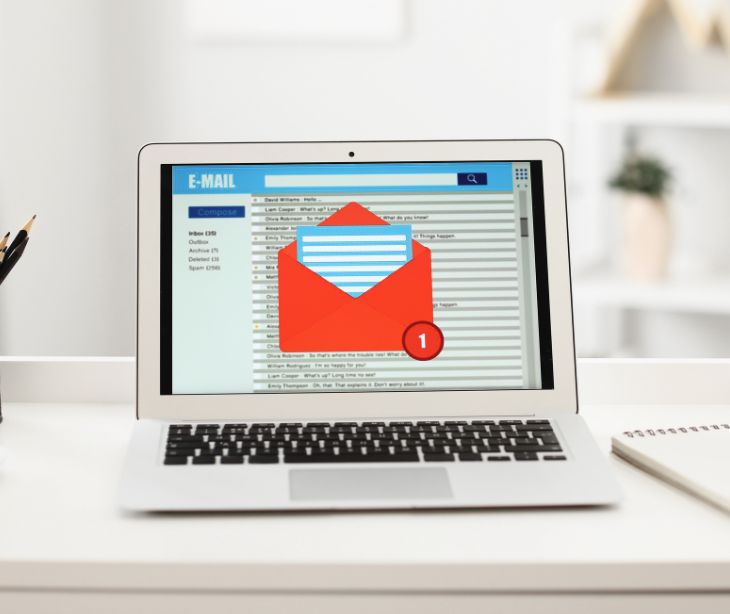4 min read
What are the consequences of non-compliance with HIPAA email rules?
Tshedimoso Makhene
February 12, 2024

What is non-compliance with HIPAA email rules?
Non-compliance with HIPAA email rules is the failure of covered entities to adhere to the regulations outlined in the Health Insurance Portability and Accountability Act (HIPAA) concerning the secure transmission and handling of protected health information (PHI) via email.
The HIPAA email rules pertain to the secure transmission of PHI through electronic means, such as email communication. The rules require healthcare entities to implement safeguards to protect the confidentiality, integrity, and availability of PHI when sending or receiving it via email.
Non-compliance with HIPAA email rules can take various forms, including:
- Failure to encrypt: Non-compliance may occur if healthcare entities send emails containing PHI without encrypting them properly.
- Insufficient access controls: Unauthorized access or transmission of emails containing PHI may lead to non-compliance.
- Lack of secure messaging systems: Non-compliance may occur if healthcare entities use insecure or non-compliant messaging platforms for transmitting PHI.
- Failure to train staff: Insufficient training on HIPAA regulations and secure email practices could lead to non-compliance among staff members.
- Inadequate policies and procedures: HIPAA non-compliance may occur if organizations lack appropriate policies or fail to follow existing procedures for transmitting PHI via email.
- Negligent handling of PHI: Non-compliance may also occur due to the careless handling of PHI in email communication, such as sending PHI to the wrong recipient.
Go deeper:
Consequences of not complying with HIPAA email regulations
- Civil penalties: The Department of Health and Human Services (HHS) can impose civil penalties for HIPAA violations. The penalties vary based on the severity of the violation but can be significant, ranging from hundreds to millions of dollars.
- Criminal penalties: In cases of willful neglect or deliberate misuse of PHI, criminal penalties may apply, including fines and imprisonment.
- Legal actions: Non-compliance can lead to legal actions, including lawsuits from affected individuals or entities, which can result in financial damages and reputational harm.
- Loss of trust and reputation: Violating HIPAA regulations can damage the trust between patients and healthcare providers, as well as the reputation of the organization responsible for the breach.
- Corrective action plans: HHS may require organizations violating HIPAA to implement corrective action plans to address deficiencies in their compliance programs. These plans can be time-consuming and costly to implement.
- Ongoing oversight: HHS may subject non-compliant entities to increased scrutiny and ongoing oversight to ensure future compliance with HIPAA regulations. This can involve audits, monitoring, and reporting requirements.
- Loss of funding or contracts: Government agencies and other entities may withhold funding or contracts from organizations that fail to comply with HIPAA regulations, further impacting their financial stability.
- Data breach notifications: Covered entities must inform the Secretary of HSS about a breach involving unsecured PHI that affects 500 or more individuals promptly, not later than 60 calendar days from discovering it. This can result in negative publicity and public scrutiny.
- Remediation costs: Remediation costs associated with investigating and addressing HIPAA violations, such as conducting forensic analyses, implementing additional security measures, and providing credit monitoring services to affected individuals, can be substantial.
Go deeper: What are the penalties for HIPAA violations?
Implementing HIPAA email rules
Implementing HIPAA email rules ensures the secure transmission of PHI via email, thereby safeguarding patient privacy and complying with HIPAA regulations.
Here is how to implement HIPAA email rules effectively:
Conduct a Risk assessment
Conduct a comprehensive risk assessment to identify potential vulnerabilities and threats to the confidentiality, integrity, and availability of PHI transmitted via email. Assess risks related to unauthorized access, interception, disclosure, and data breaches.
Develop policies and procedures
Based on the findings of the risk assessment, develop and document policies and procedures specifically addressing the secure transmission of PHI via email. These policies should outline encryption requirements, access controls, user authentication, training requirements, incident reporting procedures, and other relevant guidelines.
Go deeper: Develop and enforce robust email policies and procedures
Implement encryption
Encrypting email communications containing PHI protects sensitive information from unauthorized access or interception. Implement encryption mechanisms such as Transport Layer Security (TLS) or Secure/Multipurpose Internet Mail Extensions (S/MIME) to secure email transmissions both within and outside the organization.
Establish access controls
Implement access controls to restrict access to PHI to authorized individuals only. Utilize user authentication mechanisms such as passwords, multi-factor authentication (MFA), or biometric authentication to verify the identity of users accessing PHI via email.
Go deeper: A guide to HIPAA and access controls
Deploy secure messaging systems
Invest in secure messaging systems that comply with HIPAA regulations and encryption standards for transmitting PHI. Choose platforms that offer end-to-end encryption, message expiration, audit trails, and other security features to ensure the confidentiality and integrity of email communications.
Provide training and awareness
Train employees on HIPAA regulations, policies, and procedures related to email communication and the handling of PHI. Educate staff members on the risks associated with insecure email practices and provide guidance on securely sending and receiving PHI via email.
Monitor and audit email activity
Implement monitoring and auditing mechanisms to track email activity and detect any unauthorized access or breaches of PHI. Regularly review email logs, access records, and security incidents to identify potential security gaps and ensure compliance with HIPAA email rules.
Enforce compliance
Establish mechanisms for enforcing compliance with HIPAA email rules, including disciplinary measures for employees who violate policies and procedures. Conduct periodic audits and assessments to evaluate the effectiveness of email security controls and address any non-compliance issues promptly.
Document compliance efforts
Maintain thorough documentation of all efforts related to implementing and maintaining compliance with HIPAA email rules. Keep records of policies, procedures, training sessions, risk assessments, security assessments, and incident response activities to demonstrate compliance with regulatory authorities.
Stay updated and adapt
Stay informed about changes and updates to HIPAA regulations, industry best practices, and emerging threats related to email security. Continuously monitor developments in email encryption technologies and security solutions to adapt and enhance your email security practices accordingly.
Read more:
- Understanding and implementing HIPAA rules
- What to do if accused of a HIPAA violation
- HIPAA Compliant Email: The Definitive Guide
FAQs
Why is encryption important for HIPAA-compliant email communication?
Encryption plays a critical role in safeguarding PHI transmitted via email. It ensures that sensitive data is securely encoded during transmission, making it unreadable to unauthorized individuals who may intercept or access the email.
Can I use regular email providers like Gmail or Outlook for sending PHI?
While popular email providers like Gmail or Outlook offer convenient communication tools, they may not always meet the encryption and security requirements mandated by HIPAA for transmitting PHI. To ensure compliance, healthcare organizations should use email platforms or secure messaging systems specifically designed to meet HIPAA standards.
Go deeper:
Are there any exceptions to HIPAA email rules?
HIPAA email rules apply to all healthcare organizations and individuals handling PHI.
Subscribe to Paubox Weekly
Every Friday we bring you the most important news from Paubox. Our aim is to make you smarter, faster.




